Now we look at three philosophies inspired by death and suffering. Two came from poets—carpe diem and To be or not to be—and one came from a beggar—Life is suffering—who started a religion.
After looking at all three, we’ll think about thinking and end by enjoying.
We begin with carpe diem.
Most people have heard of carpe diem. Robin Williams taught us all about it in Dead Poet’s Society (1989).
The Merriam-Webster Dictionary defines carpe diem as “the enjoyment of the pleasures of the moment without concern for the future.” Google concurs saying, “used to urge someone to make the most of the present time and give little thought to the future.”
We moderns translate carpe diem as “seize the day.” It is assertive and refers to taking control or possession of something.
Advertisers use the expression to sell products—t-shirts, posters, beauty products, fragrances, necklaces, wine. They like to remind us that one day each and every one of us will be dead so we better buy their product and book that trip now before it’s too late!
In Carpe Diem Regained (2017), philosopher Roman Krznaric said that “seizing” the day brings to mind people who take what they can get and get things done.
It’s the philosophical equivalent of actor Shia LaBeouf screaming at us to “DO IT! JUST DO IT! DON’T LET YOUR DREAMS BE DREAMS!“
People use the phrase as a warning or direct order to take charge of your own happiness and make the most of it, but then the question becomes: “How do you carpe diem?”
Carpe diem first appeared in 20 BC in book 1.11 of the Odes by Roman poet Quintus Horatius Flaccus (65 BC – 8 BC), aka Horace.

Horace’s poem emphasizes the fleeting nature of time. He says we shouldn’t worry about how long we live or waste time talking (presumably about death). Most translations say Horace told us to “Seize the present; put very little trust in tomorrow (the future)” (Wikipedia).
Years later Jesus (1-33) is quoted as saying something similar, “So don’t worry about tomorrow, for tomorrow will bring its own worries. Today’s trouble is enough for today” (Matt. 6:34).
It’s no surprise that Horace and Jesus advised us not to worry about the future. Life was short in ancient days. If you include infant mortality (and crucifixion), life expectancy in the Roman Empire was about 22–33 years (source).
Trouble is, carpe diem doesn’t actually mean seize the day.
Horace has been lost in translation and distorted by modern culture. According to Latin scholars, carpe diem is really a horticultural metaphor designed to encourage people to enjoy the sensory experience of nature (source).
Funny how nature isn’t part of carpe diem today.
(Then again, maybe it isn’t.)

Carpe comes from carpō meaning to “pick or pluck” fruit when it’s ready and diem comes from dies which means “day.”
“Pluck the day [as it is ripe]” or “enjoy the moment” is a more accurate translation than “seize,” as in, “take hold of suddenly and forcibly” or “take (an opportunity or initiative) eagerly and decisively.”
It’s a subtle difference but philosophically speaking, it’s huge. Instead of a fist pump to “Seize the day!” and assert one’s will, it’s an open palm receiving what is given by nature (of which we are).
Cue music: “Think About It” by SAULT.
But what if you can’t enjoy the sensory experience of nature? What if you’ve thought yourself into not wanting to live? What then?

In Shakespeare’s play Hamlet, Hamlet asks himself if he should suffer the misery of life (a “sea of troubles”) or should he kill himself (“take arms against a sea of troubles”) to end “heart-ache and the thousand natural shocks.”
But then Hamlet wonders if there is an afterlife, and if there is, what if that afterlife is worse than life?
Hamlet’s question of life and death is a question of existence and nothingness, but according to Harvard professor Jeffrey R. Wilson (2017), “To be, or not to be” is not what it seems to be (source). Hamlet could be faking because he knows someone’s listening.
Wilson points out how philosophy and drama are different. Philosophy is about knowing whereas drama is about doing.
Years before Hamlet debated life vs. death and Horace had his horticultural insight as master of a country estate, another aristocrat, Siddhartha Gautama (the “Buddha”) (c. 5th-4th century BC), bummed everybody out with his Noble Truths including: “birth is suffering, aging is suffering, illness is suffering, death is suffering, union with what is displeasing is suffering, separation from what is pleasing is suffering and not getting what one wants is suffering” (source).
That’s a lot of suffering. You can’t win, so why even try?
According to this philosophy you’re born to suffer, but if you accept that life is crap, you won’t be surprised when it is crappy or expect it to be any other way.

“Philosophy Tech Support”, Existential Comics 51: https://existentialcomics.com/comic/51
This idea that we cause ourselves suffering by resisting what is, is something Stoics, Epicureans and Bill W., founder of Alcoholics Anonymous, also discovered.
Gautama maintained that things which cause pleasure eventually fail because when we like something we think about it and we want it again (and again…) and it’s the craving that causes trouble.
The idea is that suffering is created by our craving for pleasure, but if Guatama had an Electroencephalography (EEG) to show brain activity in psychological states, he would see that liking and wanting are in “two different motivation systems in your brain” (source).

Unconscious thinking (System 1) is fast, intuitive, and emotional whereas conscious thinking (System 2) is slower, more deliberative and logical.
In Thinking, Fast and Slow (2011) psychologist and Nobel Prize winner Daniel Kahneman (1934- ) explains how the two systems drive the way we think and make choices. Kahneman challenges the idea that “people are generally rational” because errors arise not just from emotions that can cloud judgement, but from our built-in brain machinery.
If you eat fried chicken, for example, you are conscious of the taste and smell in the present moment, but if you want fried chicken, that wanting could be unconscious because you smelled chicken as you walked by. It’s like a button was pushed in your brain (and you didn’t know).
The trick is to slow thinking down. Forget Hamlet’s mental perambulations and remember Horace’s advice to enjoy nature with your senses. Watch what you’re thinking to identify biases and become aware of what’s going on in your brain and all around.
It’s all interconnected.
Now we dance, eat an apple, and enjoy simply.
Much love.




















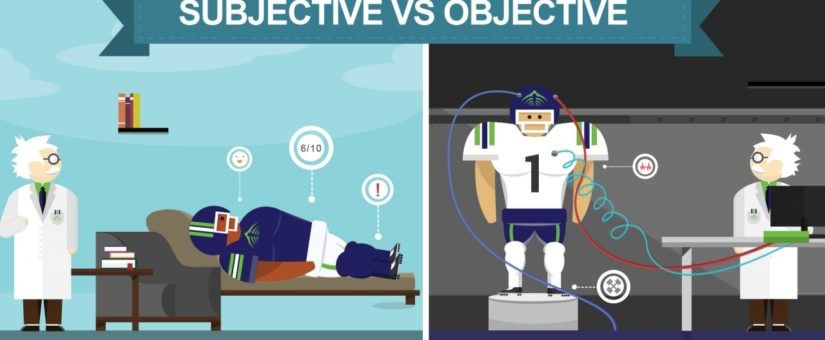






 It was in a Human Resources Leadership seminar that a Power Point slide with two bullet points was shown:
It was in a Human Resources Leadership seminar that a Power Point slide with two bullet points was shown:


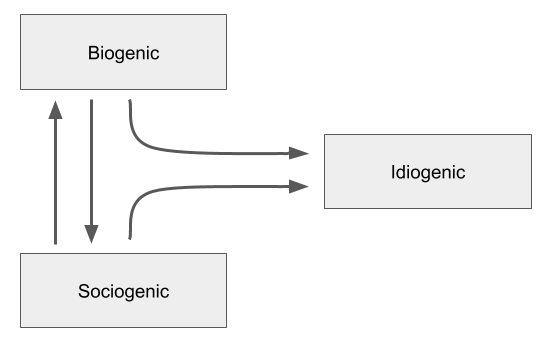






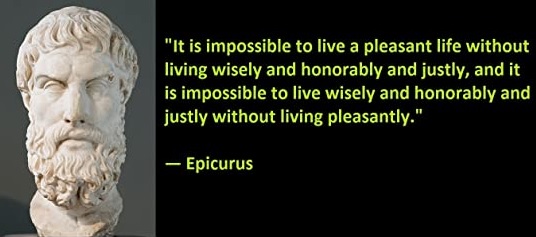


 But if all joy is fleeting, like the clown says, then so is “despair,” “despondency” and “apathy”– possibly. If all emotions—including the “bad” ones—are fleeting, then one need only let them pass fleetingly.
But if all joy is fleeting, like the clown says, then so is “despair,” “despondency” and “apathy”– possibly. If all emotions—including the “bad” ones—are fleeting, then one need only let them pass fleetingly.










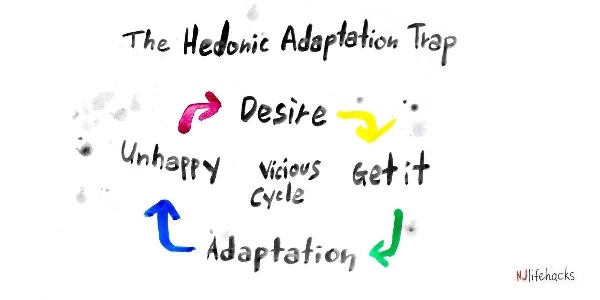
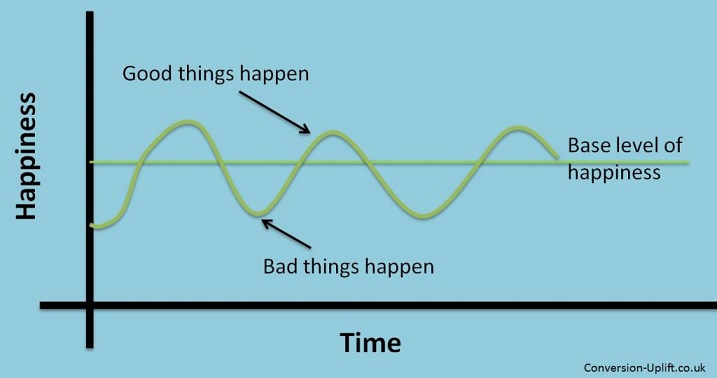
















 Watching old films has a way of putting life into perspective (see also:
Watching old films has a way of putting life into perspective (see also: 





 We know living things are made up of cells and a cell is a “protein-based robot too small to feel or experience anything”
We know living things are made up of cells and a cell is a “protein-based robot too small to feel or experience anything” 











 But no more. With a click of awareness, from this moment forward (and backward), you
But no more. With a click of awareness, from this moment forward (and backward), you 
